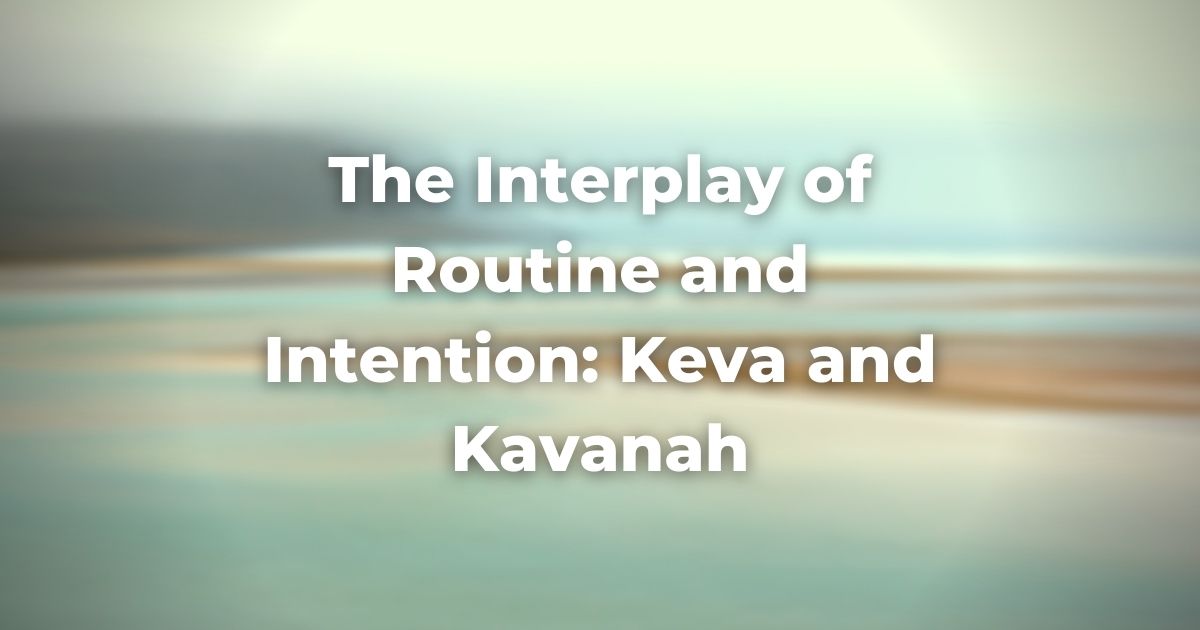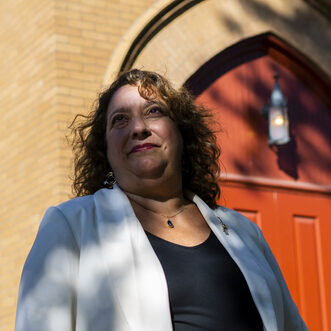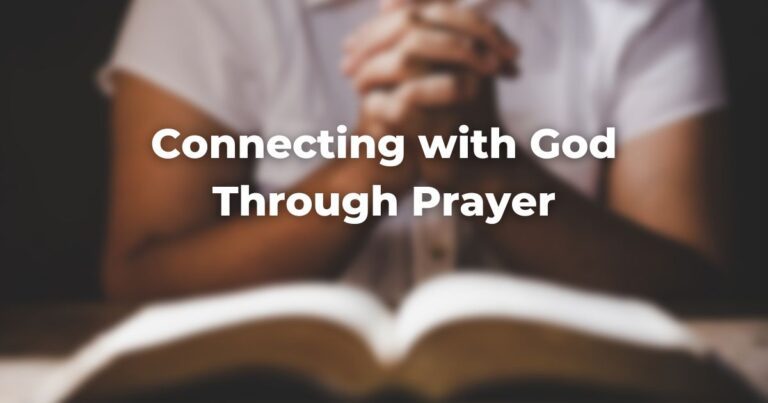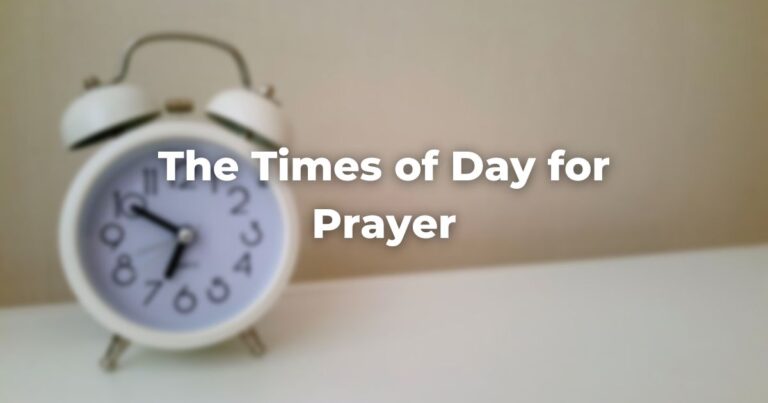In Pirkei Avot, we read this lesson of Rabbi Shimon:
“When you pray, do not make your prayers a set routine (Hebrew: keva), but offer them instead as pleas for mercy and grace before God” (M Avot 2:13).
Because prayer is viewed as central to Jewish religious life, it cannot be dependent upon uncertainties of mood and spirit.
As a result, Jewish ritual has established statutory prayers and a detailed schedule of times, seasons, and occasions when one should recite them.
Within this formalized context, however, Jews are expected to pray with the highest level of kavanah (also spelled kavana)—the most powerfully focused spiritual intentionality.
This intentionality, kavanah, is the personal touch brought to each prayer.
It is the new meaning or the alternative emotional response to the ancient text that makes each prayer a private, idiosyncratic plea for God’s mercy and love.
It is often the case that keva and kavanah are thought of as polar opposites, such that achieving one almost by definition negates the ability to achieve the other.
But the reality is quite different and our prayers are almost always a mixture of both keva and kavanah.
The goal, therefore, cannot be to embrace the one and eschew the other.
Instead, the goal has to be to blend the two in each instance of heartfelt tefillah in such a way that we utilize the familiarity of the oft-recited text (keva) as a spur to finding ever deeper layers of meaning in it (kavanah).
This heightened awareness of old and new intertwined in the ancient prayers of a modern worshipper is the great goal.
It may not always be achieved, but it will always be worthy of the effort invested.
Nevertheless, it will be more comfortable to recite one’s prayers in a routine (keva) fashion, especially after one has memorized the words and can recite the prayers by rote. This routine can be an essentially negative experience.
It would be optimal to approach the text afresh with every single reading.
Since that can be hard to do, the next best thing is to exploit the routine of tefillah so that the familiarity itself becomes a means of helping each individual move to a deeper level of spiritual life.
The routine of tefillah can and should serve to make the language and movement of the service familiar (keva). In turn, this familiarity can allow the willing worshiper to access a better and ever deeper understanding of the concept of prayer itself (kavana).
Adapted with permission from The Observant Life.
Authors
-

Rabbi Dr. Karen G Reiss Medwed, is Teaching Professor emerita at Northeastern University. She serves as Interim Vice Provost, Academic Affairs and Initiatives for HUC-JIR. Dr. Reiss Medwed's scholarship includes digital education, higher education leadership, and faith-based education. Dr. Reiss Medwed was ordained by JTS in 1995, and earned her Ph.D. from New York University's Steinhardt School of Education in Curriculum, Teaching and Learning with a specialization in Jewish education in 2005.
View all posts -

The Observant Life: The Wisdom of Conservative Judaism for Contemporary Jews distills a century of thoughtful inquiry into the most profound of all Jewish questions: how to suffuse life with timeless values, how to remain loyal to the covenant that binds the Jewish people and the God of Israel, and how to embrace the law while retaining an abiding sense of fidelity to one’s own moral path in life. Written in a multiplicity of voices inspired by a common vision, the authors of The Observant Life explain what it means in the ultimate sense to live a Jewish life, and to live it honestly, morally, and purposefully. The work is a comprehensive guide to life in the 21st Century. Chapters on Jewish rituals including prayer, holiday, life cycle events and Jewish ethics such as citizenship, slander, taxes, wills, the courts, the work place and so much more.
View all posts







